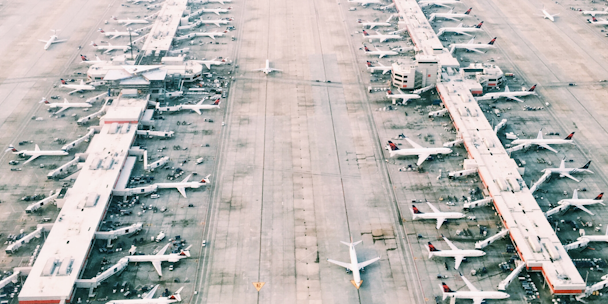Grounded brands: can you still be relevant when your brand goes to zero?
2020 rolled in like most years before it, with me on a plane.

Between work and holidays, the second half of 2019 had felt like I was away more than I was home. We flew home on New Year’s Day having spent the holidays with my parents. I had no idea at the time that it might be both my first and last flight of the year. All the 50th birth-year celebration plans – parties in Ibiza, Olympics in Japan – blown away like leaves in a monsoon wind.
Overnight, my relationships with a host of organisations went to zero., particularly in the travel sector. I had played the points game intently. KrisFlyer, Marriott Bonvoy, DBS Altitude points and Changi Rewards had absorbed brain cycles and administrative planning time. Until they suddenly didn’t.
And I started to wonder, did these brands still have relevance in my life?
As a design thinking practitioner, I am endlessly fascinated by how humans interact with the world, and how those situations can be made better. Empathy is at the core of insight, and even if we are socially isolated, there is so much to learn from self-reflection – and, of course, Zoom calls.
Prognostications that offer comfort in the form of certainty do not seem a responsible way forward in such exceptional times. I don’t think that is a responsible course of action either for people concerned about their family, or their business. Very few organisations have planned for a worst-case that involves a pandemic driving their business to zero and we have no modern examples of what coming out of that looks like.
It made more sense, to me at least, to gameplay. There is a range of views on where we come out of Covid-19. Placing them on a game board, mapping potential outcomes, and observing one’s own confirmation biases seemed like a good place to start.
At one end of the spectrum, Mark Ritson snarkily asserts that consumers go back to doing exactly what they used to do. If that is true, then after having tentatively emerged back into the sunlight and re-discovered my sea legs, I will re-engage with all my favourite travel providers in pretty much the same way. Hmm, my confirmation bias screams ‘no!!!’ I realise I have started to replace the status and points game with a couple of new games, one called ‘how much have I saved today?’, and its twin called ‘how much carbon have I not emitted today?’
Still, it is eminently possible.
At the other end, we have David Galbraith arguing we are in a period of flow change, a shift as profound as the industrial revolution. It is one that Galbraith believes will need society to re-balance from efficiency to flexibility, embracing the anti-fragile resilience that feeds on chaos, that Nassim Nicholas Taleb had advocated for.
In that world, some relationships really do go to zero, some will re-factor, and new brands will gain prominence in my life.
Back to my question: these huge brands that went to zero in my life overnight, do they still have some relevance to me?
Take Changi Airport, which is 98% down year-on-year. Like most residents of Singapore, I believe it is the best airport in the world. For leisure trips my family would always want to go earlier to spend time at Changi; truth be told, I did the same for business trips.
Changi is the last place in the world I want to be right now. I do, however, remember it with affection, and look forward to being back there. Reflecting on life as we all are, I hope to be there less often, because of carbon. But I also hope to have more time to value that experience when I am.
Similarly, Singapore Airlines. Best airline in the world, down 96%. Don’t want to be on a plane, looking forward to fewer SQ flights with more time to enjoy them.
The most interesting experiences have been with hotel groups.
Marriott as a brand has gone up huuuuugely in my estimation. In March, the CEO wrote to Bonvoy members with the opening line ‘For more than 90 years, Marriott has lived by a core value established by our founder, JW Marriott, Sr., to "take care of our guests and associates."’
Arne Sorenson’s next email focused first on how their hotels were helping provide shelter for frontline staff in healthcare, the military and supermarkets. He shared how associates were making facemasks, providing food for those at risk, and lighting up hotel windows with messages of hope and solidarity.
At the end of that email, I was assured that my status and points would be extended for another year and was informed I could support charitable efforts using those points through Marriott’s giving program.
Subsequent emails provided armchair travel opportunities using video and augmented reality, the chance to order food from the restaurants of local hotels, and a poem reminding me that ‘we will travel again’.
Now that is a brand communication, and the experiences offered up really hit home. This is a wonderful example of something we at VMLY&R believe; that brand experience is the promise, and customer experience is the fulfilment of that promise.
We are all experiencing a rollercoaster emotional ride at the moment. That is why we are noticing both how brands can be a force for good whilst also seeking to take advantage of the crazy situation we are in.
It is more important than ever for brands to be empathic to what customers, employees and the community at large are going through. Those who can tap into this human-centred approach can position themselves for take-off as we come out of this crisis. Even if their business has gone to zero.
Keith Timimi is chief innovation officer, VMLY&R Asia.
